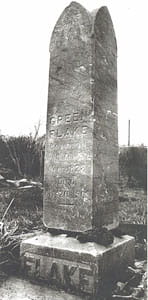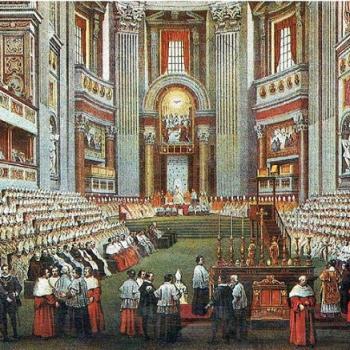Years later, after Martha's 1885 death, Green was invited to speak at a Pioneer Appreciation Day in Willow Creek, Idaho. He told about the pioneer trek, and then asked if there were any questions. A young woman shouted, "Mr. Flake, what was it like to be a slave?" Bishop Simmons stood and stated, "You don't have to answer that question, Brother. Flake." Green wanted to answer, however. Now, at last, he was free to speak for himself. Does his account represent the entire truth about his bondage, especially given that he was speaking years after his emancipation? Certainly not, but it represents his perception of it, which deserves more careful consideration than anyone else's account. As recorded by Bishop Simmons's daughter, Green said:
:::page break:::Being a slave is all right—if you just want to be a slave, that is. But many of the colored folks wanted a better life, if they could find one. . . . I was raised a slave and had a master to tell me what to do. He gave me a place to sleep, fed and clothed me, worked me, and told me what to do each day. Sometimes I got whipped, and my master would give me a big kick in the pants if I sluffed off or made a mistake or if I was lazy . . . Slavery has been around a long time, and the colored folks got sold like they was a horse, a cow, or some other animal. They become the owner's property, and they work long and hard for the massa. Most everyone don't want to be a slave and be in bondage to another, because you cain't have even your own thoughts and dreams. You can't plan for the future when all decisions get made by someone else. (Green's description of slave life is from Fretwell's interview with Udell-Miscellaneous Family Papers, 9, citing notes from the Pioneer Appreciation Day. More of Flake's descriptions are included in the updated second volume of Standing on the Promises, to be released in October by Zarahemla Press.)
 |
| Bishop Simmons and Family |
Though Green had been called "saucy" as a young man (an insult for a slave who was expected to be meek and servile), his generosity and energy were clear by the time he reached full manhood. Oz Call, who had been assigned to see to the needs of the Black Mormons in Idaho, identified Flake as "the best damned missionary we have." Even more telling is Flake's reaction to the news that his master, James Madison Flake, had died. When asked if perhaps his master had been punished by the mule's kicks because he had kicked Green so often, Green replied, "I would hate to think so. Let it pass. No good can come of it. Let it pass!" (Fretwell's interview with Udell, 11).
In 1897, Green Flake was invited to participate in the jubilee celebration of the pioneers' arrival in Utah. Evidence supports the Flake family lore that he was the driver of the wagon carrying Brigham Young, and that it was to him that Young said the words, "This is the right place. Drive on." Therefore, he would certainly be an honored guest. Flake wrote his own acceptance letter—misspelled, but a clear declaration of independence from one who had not received education in his youth: "Dere Frind: I reseved you most kind and wellcom leter an ticket an was glad to reseved it at an I will bee down to the Julile. Yours truly, Friend Green Flake" (Joel Flake Jr.'s "Green Flake" 25).
As he aged, Green Flake carved his chosen epitaph into his gravestone: "In my Father's House are many mansions." He died on October 20, 1903.
 |
| Gravestone for Green and Martha Flake, Union Cemetery |
Where is Green's true story amidst the memories of his descendants and the descendants of those who considered him their property? All historians know that they will never tell an objectively true story. The story we must listen to most carefully comes from the one who personally experienced the events. Even if a few details are not quite right when compared to historical data, even if their version of events changes with retelling, the personal perception is the best starting place. We will never completely "capture" Green Flake's story. We wouldn't want to. Even if it were possible, it would violate his freedom to dream, because we would also capture his dreams. But we can honor his story, and him. One of the best tributes comes from Lucy May Brady Green, who knew him in her youth:
He was educated enough so that he was never doing anything wrong. He was very good to the children, and all children liked him. He was also willing to help if needed . . . I think most everybody liked him. I don't think he had an enemy . . . He used to come to Dad's home once in a while. If Dad needed help, he helped Dad-not as a hired man. (Quoted in Steven Madsen's Fort Union, 51)




